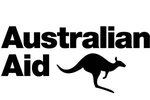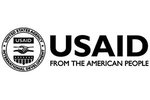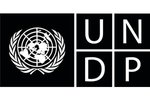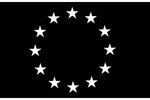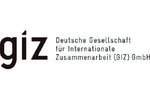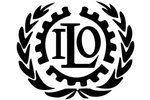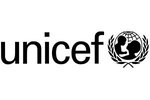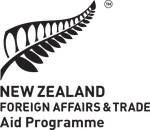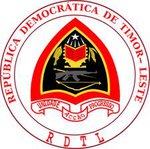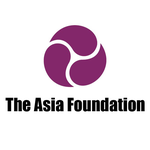IWD 2021: Meet Gabriela Leite-Soares
It’s International Women’s Day and we’re celebrating women who #choosetochallenge every day!
We asked our team to nominate an inspiring female team member who is committed to challenging the gender status quo in their everyday lives.
With too many nominations to cover, we’ve selected just a few of our outstanding team to give you a flavour of the passionate, driven women we are lucky enough to work with every day.
Gabriela Leite-Soares - Head of Health at Catalpa
If you want to understand or discuss gender issues at Catalpa, you need to talk to Gabi. A passionate advocate for equality in all its forms, Gabi has worked to promote women in Timor-Leste on national and international platforms throughout her life and career.
Her extensive experience has seen her lead a wide range of gender and health programs, including Senior Researcher for the Global Health Security Index at the Economist NYC, and Consultant for the “Say NO to gender-based violence” program with Plan International Timor-Leste.
Now Catalpa’s Head of Health, Gabi leads a range of programs in partnership with the Timor-Leste Ministry of Health, and other partners. Many of these projects have a strong gender focus, such as Liga Inan, which has seen almost 80,000 Timorese women connected with healthcare professionals during pregnancy. Participating women receive important health information and are encouraged to give birth in a health facility (with great results).
Gabriela has worked in the UNICEF Gender & Development Team in New York, and is also the founder and lead organiser of TEDxDili and TEDxDiliWomen. She holds a Master of Public Administration from Cornell University.
In her own words…
What does the IWD theme #choosetochallenge mean to you?
For me, the theme #choosetochallenge means continuously questioning and challenging the biases in our society, including my own. This means speaking out against behaviour that normalises sexism, racism, ableism, homophobia and transphobia. This means to challenge and put an end to negative gender stereotypes that result in the normalisation of violence against women, children and LGBTIQ. Whenever I hear friends making sexist jokes, such as how women always talk too much or are emotional, or those who still glorify virginity and seem to think that women’s worth is measured by whether we are still virgins or not - I always challenge these types of conversations and behaviours.
It also means choosing to speak out about the realness of violence against women, children and LGBTIQ and its impact, and to dismantle practices and behaviour that undermine the experience and trauma of victims and survivors of abuses in any form.
This means choosing to constantly challenging myself to learn, unlearn, and relearn about our history and how the legacy of colonialism, racism, and patriarchy that still pervade society and have resulted in oppression, discrimination, injustice, and the exclusion of some groups to have basic rights to health, information, education, and safety.
On this International Women’s Day, #choosetochallenge is also a call to our leaders to recognise women’s contributions in the development of our society, both paid and unpaid, and more importantly to include us in public discourse and decision-making that impacts our lives. It’s time to stop making decisions about our bodies without having us at the table — yes, I am talking about access to information and services of sexual and reproductive health.
Do you have a personal philosophy that drives you?
I firmly believe that if we do not confront injustice, sexism, racism, and ableism in our society, we are enabling it.
What is your hope for women in Timor-Leste?
I hope that every girl and woman in Timor-Leste has access to the right information and access to sexual and reproductive health. I hope that every girl and woman in Timor-Leste is able to pursue their aspirations and live free from abuses and discrimination, either at their own home or workplace. I hope that every girl and woman in Timor-Leste will rise up to challenge negative gender stereotypes in our society that put a price tag on us — that value our worth by an outdated and unscientific belief called “virginity” that is used to oppress us; and I hope that every girl and woman supports each other and knows that to be truly enjoying the freedom in our country, we must help one another to rise.
What change would you like to see that could bring greater equality for women in Timor-Leste?
In my daily life I push for equality by constantly having conversations with my family about norms and stereotypes that are oppressive. For instance, I am the eldest of five girls and we were raised with the teaching that ‘women need to know how to perform household chores because we are women’. Yet we seldom hear this expectation about men. I constantly challenge this type of teaching because I believe that men, like women, need to know and do household chores because if you want a clean house, you gotta clean it; and if you want to eat, you gotta cook.
I like to chat with my sisters and my son about drawing and respecting boundaries and consent, which is critical in our society where sexual education is absent and discussion about sexuality is seen as a taboo subject.
In a broader sense, I believe that we need to have more women in leadership and decision-making roles. Women’s participation in leadership should not only be treated as “tokenism”. Moreover, those women who are already at the top should help other women.
And last but not least, equality cannot wait — so men and those in positions of privilege and power must join us in this fight toward a more equal and fair society.
What the team said…

“Gabi walks the talk on gender issues and what I love the most about her approach is that she is calm, gentle, inclusive and thoughtful. She is constantly curious and learning, has a thorough knowledge of the subject matter, and regularly challenges us on our biases and assumptions. She is someone who is both a practitioner of gender issues as well as its promoter.”

Connect with Gabriela on Linkedin.
